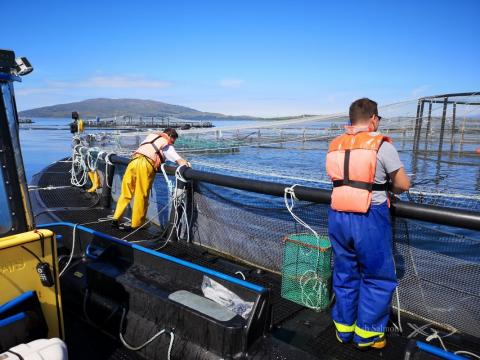A new MCCIP project, Climate change risks to COastal COmmunities and their health and wellbeing (COCO), aims to explore in more detail the threat of climate change to coastal communities and their wellbeing. The project is developing community-led solutions to some of the barriers blocking current adaptation interventions, contributing to a UK-wide expert and stakeholder network, and advancing the knowledge base.
MCCIP has undertaken a major stakeholder consultation to gain a deep insight into barriers to climate change adaptation for coastal communities in the UK, and to explore opportunities for positive action. The consultation report is now available here.
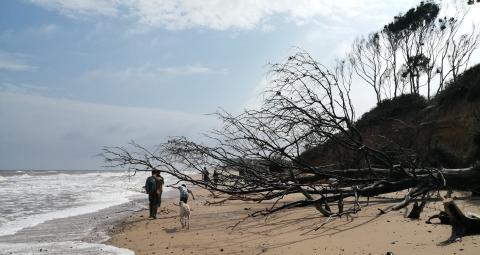
MCCIP has published a set of policy briefs framed around the Fisheries act climate change objectives and the joint fisheries statement, which sets the direction of UK fisheries management. The policy briefs cover:
- How can UK marine fisheries and aquaculture support net zero?
- How do we build adaptive capacity in UK fishing fleets?
- How can we manage marine climate change impacts on UK aquaculture production?
The briefs are hosted on this webpage, which also considers climate change implications for fisheries management plans, marine spatial planning, area based management tools and transboundary management of shifting fisheries stocks.
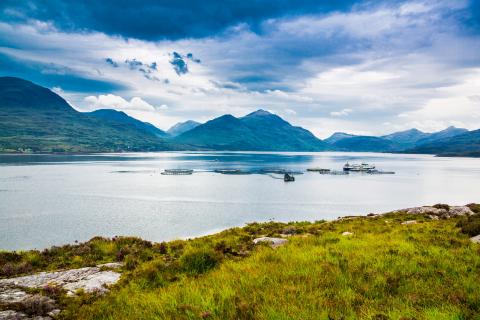
The MSPACE programme is designed to drive forward implementation of climate-smart, economically viable and socially acceptable UK marine spatial planning.
MSPACE has now published its 'early warning system', a state-of-the-art modelling analysis showing where, and for how long, marine conservation, fisheries and aquaculture could be best supported across UK seas. Find out more here.
To support publication, MCCIP hosted a webinar on the 29th April which provided an overview of the programme, summary of technical outputs, user perspectives from the MMO and DAERA, next steps, and included an audience Q and A session. Please see the webinar recording here.
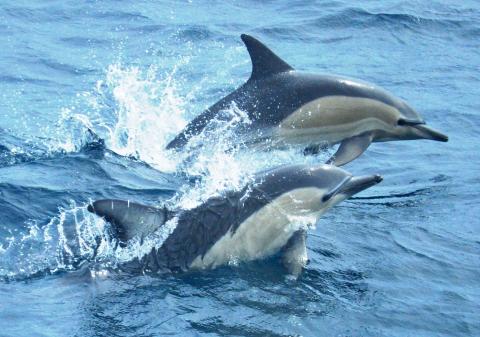
1. Seabirds and Waterbirds - Niall Burton, Head of Wetland & Marine Research, British Trust for Ornithology. The webinar is here.
2. Transport and Infrastructure - Heidi Roberts, Director, ABPmer. The webinar is here.
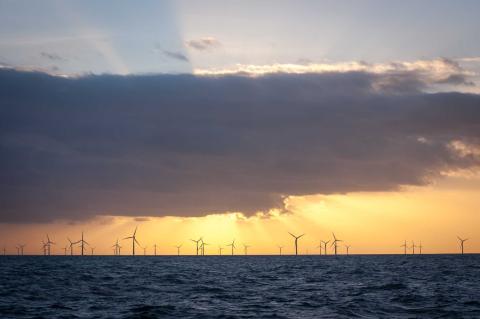
1. Arctic Sea Ice: Ed Blockley – Polar Climate Group, The Met Office. The webinar is here
2. Fish: Dr. Clive Fox – Scottish Association for Marine Science (SAMS). The webinar is here
3. Fisheries: Dr. John Pinnegar – the Centre for Environment, Fisheries, and Aquaculture Science (Cefas). The webinar is here
4. Cultural Heritage: Dr. Mairi Davies - Historic Environment Scotland. The webinar is here
- Sea Temperature: Dr Richard Cornes - National Oceanography Centre. The webinar is here.
- Ocean circulation: Dr Gerard McCarthy - Maynooth University. The webinar is here.
- Storms and waves: Dr Lucy Bricheno - National Oceanography Centre. The webinar is here.
- Oxygen: Professor Claire Mahaffey - University of Liverpool. The webinar is here.
- Marine Mammals: Emily Martin - JNCC. The webinar is here.
The webinars showcase how the evidence base has moved on in these key areas since MCCIP last reported in 2020 and how it impacts your work areas by hearing directly from the lead authors.
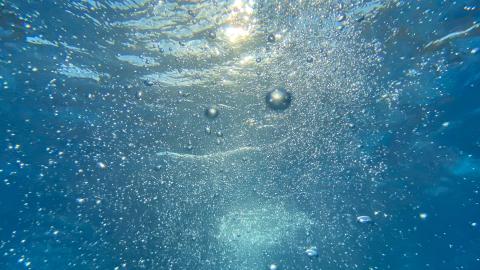
- Shelf-sea stratification: Prof. Jonathan Sharples - Professor of Ocean Sciences, University of Liverpool. The webinar is here.
- Ocean acidification: Dr. Helen Findlay – Biological oceanographer, Plymouth Marine Laboratory. The webinar is here.
- Marine Aquaculture: Dr. Alexander Murray – Group leader and epidemiologist, Salmon and freshwater fisheries programme, Marine Scotland. The webinar is here.
- Coastal flooding: Prof. Ivan Haigh – Associated professor in Ocean and Earth Science, University of Southampton. The webinar is here.
